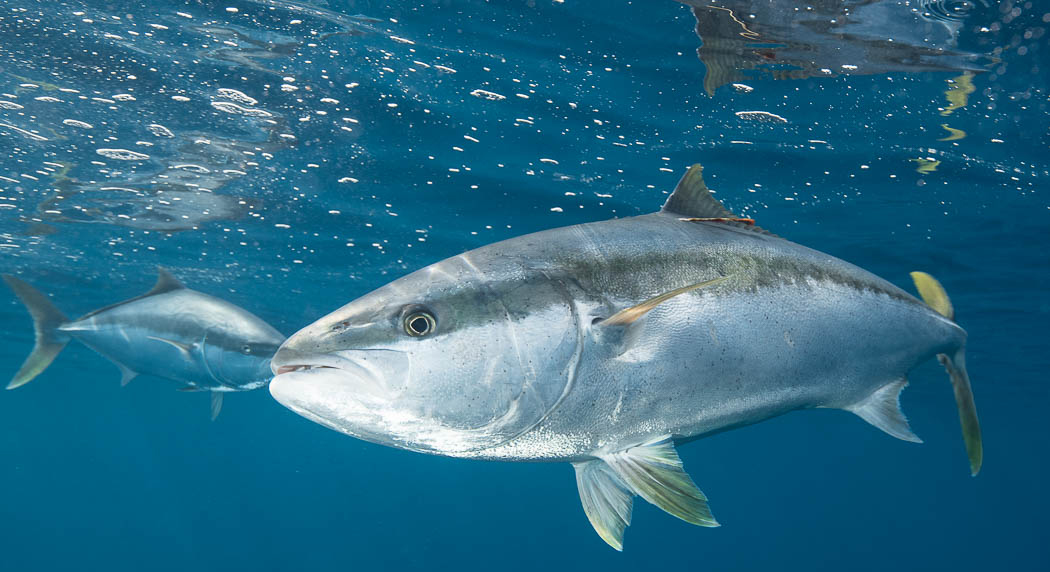A recent study has used the Remora R package to identify environmental drivers of activity in acoustically-tagged yellowtail kingfish, Seriola lalandi, as well as connectivity across fisheries management jurisdictions via the IMOS Animal Tracking network of acoustic receivers.
Remora is a data product developed by the IMOS Animal Tracking Facility after receiving a Research Attraction and Acceleration Program grant from the Office of the New South Wales Chief Scientist & Engineer. Remora enables robust quality control and interactive visualisation of acoustic telemetry datasets, as well as the rapid extraction and integration of IMOS oceanographic measurements with spatiotemporal ecological data (e.g. animal tracking datasets, fisheries catch records, ecological survey records, etc.).
This new study by Thomas Clarke et al. used a network of 93 acoustic tracking receivers across south-eastern Australia to identify the effects of environmental conditions on the activity of the yellowtail kingfish, an economically important species with a crucial role in coastal and pelagic ecosystems and fisheries.
The research found that kingfish activity was strongly influenced by sea surface temperature and hour of day, with smaller effects from distance to nearest landmass and bathymetry. Activity also decreased during higher tides and periods of greater moon fraction.
This study demonstrates the usefulness of the IMOS continental network of acoustic receivers to detect and monitor highly mobile marine species, including species of management importance, across broad spatial scales.
Importantly, the study also enhances understanding of the ecology of this recreationally and commercial important species, through the use of the Remora toolkit, gaining a better understanding of the relationship between kingfish activity and environmental conditions across south-eastern Australia.
